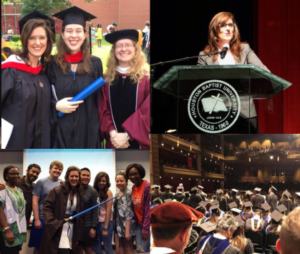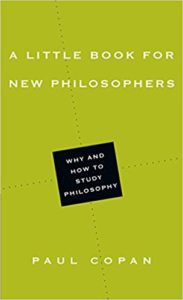In my three decades of local church ministry, I have found it to be an unfortunately rare circumstance in which church leadership recognizes and admits that their ethics, methods, and discernment have failed, and then makes appropriate changes. While I could chalk this up to the general fallenness of humankind, I also generally expect to find something better from those who profess God as the standard of goodness, and who then take leadership roles in adherence to that profession. Though I understand my experience is not the experience of every Christian, it’s probably the reason why I connect with the story of the Star Wars character Ahsoka Tano.
If you aren’t familiar with this character, Ahsoka comes into the Star Wars universe via the animated television series, “The Clone Wars,” as Jedi Knight Anakin Skywalker’s [1] outspoken, brave, and feisty preteen padawan. Throughout the series, the audience watches her grow into her young adult years, matching her master’s passion, skill, loyalty, wit, and somewhat reckless Jedi behaviors. Yet, overall, Ahsoka is genuinely and deeply devoted to the teachings and ethics of the Jedi Order. While she does question the things she is taught, she seems to do so out of respect for the Order, not in defiance…nor from a darker turmoil, such as found in Anakin.
[Spoiler Alert for The Clone Wars]
So, it is an especially troubling situation when Ahsoka is falsely accused of an egregious crime by the Jedi Council (and the Senate) and is swiftly brought to judgment and punishment, including her expulsion from the Order. Given the years of Ahsoka’s proven character, the action taken seems uncharitable and even irresponsible on behalf of the leadership. However, as the storyline goes, there is a difficult to discern and complex fallenness to the Order, which shows up quite dramatically in this circumstance. They pursued the perception of wrong-doing, rather than deeply considering the somewhat obvious things such as the character, motive, and desires of the accused.[2]
Ultimately, Anakin discovers the truth of the false accusation and Ahsoka is acquitted of all charges, being asked to come back into the Jedi Order. However, Ahsoka is deeply troubled by these proceedings. The Order, being funded by the Senate, seemed to simply fall in line with the structural and organizational patterns that would keep them on good terms. When the situation became difficult to discern, they did not seem willing to stand up for the very ideals they profess. [3] Their wavering ethics and distrust of Ahsoka led to her walk away from the Order, not from their teachings but from their leadership.
As good stories and characters tend to do, this character helped me to understand some problematic aspects within local and global church cultures. Sometimes, church organizations and leaders fail to recognize a person who holds deeply to a high Christian ethical standard. We’ll begin the conversation with two reasons why this might happen: pragmatism and the culture of the company man.
#1. The person’s high commitment to ethics challenges the pragmatism of the leadership.
I’ve often heard Christians say, “There’s too much worldliness in the church.” However, I have a different take on what this means than others using it.
For the most part, “worldliness” seems to be used in reference to the culture wars of the church. It therefore implies the various social and political attitudes or stances that Christians or churches may adopt. Yet, many times, I’ve seen churches adopt a methodology that is pragmatic and utilitarian in approach; where the “ends justify the means.” This utilitarian approach, with a subsequent consequentialist morality,[4] is something I would call “worldliness” in the church.
If a church, Christian leader, or influencer has adopted an “ends justify the means”[5] attitude towards whatever they are attempting to do or say, they have fundamentally left behind the model of Christ. Christ is the master of the content of truth, of the method of communicating truth, and of the ability to live out truth, all at the same time. However, Christians are prone towards adapting worldly methods and means of communicating and living out truth that are antithetical to the model of Christ, while simultaneously professing a strong commitment to content of truth. [6] One cannot profess to be against worldliness in the church while using a philosophically worldly methodology to communicate that message. [7] It’s hypocrisy. Listen to what Jesus had to say about such practices:
Matthew 23:1-3 ESV Then Jesus said to the crowds and to his disciples, “The scribes and the Pharisees sit on Moses’ seat, so do and observe whatever they tell you, but not the works they do. For they preach, but do not practice.”
Matthew 23:27-28 ESV “Woe to you, scribes and Pharisees, hypocrites! For you are like whitewashed tombs, which outwardly appear beautiful, but within are full of dead people’s bones and all uncleanness. So you also outwardly appear righteous to others, but within you are full of hypocrisy and lawlessness.”
When the Jedi Order became a military arm of the Senate, rather than a separate religious entity that would challenge the Senate’s thoughts and actions, they gave into a pragmatic existence. The Senate funded their Order, which greatly aided their abilities to maintain their systems and organization…the status quo. Yet, as the saying goes, man cannot serve two masters. Ahsoka was blindsided by the extent of their fallenness when it came to her false trial. Even though she was proved innocent, their inability and unwillingness to discern goodness and truth left her disillusioned with their institution. They had allowed the worldliness of the Senate, and its pragmatism, to corrupt their high moral commitments to the Jedi way. To keep her faith, Ahsoka had to leave the Order behind.
#2. The person won’t just “fall in line” or be a “company man”
From my observation over those three decades of church ministry, there exists a strong culture of “being a company man” within the church. A company man isn’t necessarily a thinker, questioner, or challenger, he rather just falls in line with whatever the leadership says. He tends to support the organizational leadership no matter what. Loyalty, in of itself, is a virtue, and not necessarily bad. Yet, this previously mentioned type of loyalty is often at the cost of the company man’s family and/or their own godly conscience. [8] Of course, this type of environment is typically ripe for abuse. If leadership cannot be challenged, or even questioned, then there’s no accountability for their thinking and actions. This environment is not in line with Scriptural teaching which admonishes believers to seek advice and understanding from others:
Proverbs 19:20 ESV Listen to advice and accept instruction, that you may gain wisdom in the future.
Proverbs 12:15 ESV The way of a fool is right in his own eyes, but a wise man listens to advice.
Proverbs 18:2 ESV A fool takes no pleasure in understanding, but only in expressing his opinion.
Ahsoka’s trial was symptomatic of the internal rot within the Order, even though it seemed highly efficacious in outward appearance. As the truth of Ahsoka’s innocence came to light, she was shaken by the lack of trust in her character. She didn’t always fall in line with the thoughts and actions of the leadership, but she always had the best intentions in mind. Her false trial was an opportunity for the Jedi to reflect and grow from this out-of-the-ordinary circumstance; and it had potential to change their looming trajectory of destruction. A few of the leaders seemed concerned with the mistreatment of Ahsoka, but that concern didn’t translate to significant, or even initial, reform. The Jedi had become their own worst enemy, with blind spots that left their organization open to a dangerous downfall.
Proverbs 27:5-6 CSB Better an open reprimand than concealed love. The wounds of a friend are trustworthy, but the kisses of an enemy are excessive.
Recognizing our own Ahsoka Tanos
In circumstances where an ethical problem in the leadership, structure, or overall organization is pointed out by another leader in the church, the most frequent result I have experienced is that the ethics advocate ends up walking away to “not disrupt the church.” And, in not disrupting the church, it is therefore left on its trajectory of moral and ethical failure. We see such a circumstance in Ahsoka Tano’s stepping away from the fictitious world of the Jedi Order, but can we not yet see it in the real-world Church with all the past and current moral failures?
We, the body of Christ, need to be much more mindful of those in our midst whose character is akin to Ahsoka Tano…a truly committed believer whose clash with the church is over unethical leadership or worldly methodologies, such as “the ends justify the means.” Instead of pushing such individuals out, or maliciously attacking them, we should make space for their voice…as it could be a needed attempt focus us back on our commitment to putting God, and His ways, first.
Footnotes:
[1] For those who are not Star Wars fans, this character becomes Darth Vader, with whom you are probably familiar.
[2] Such as her unwavering devotion to the Jedi Order.
[3] As far as we know, they didn’t even use the force together as a council in attempting to discern about her innocence or guilt! What? Crazy.
[4] Consequentialism, as its name suggests, is simply the view that normative properties depend only on consequences. “Consequentialism.” Standford Encyclopedia of Philosophy. June 3, 2019. Available from: https://plato.stanford.edu/entries/consequentialism/ Accessed August 2, 2023.
Further, whether an act is morally right depends only on consequences (as opposed to the circumstances or the intrinsic nature of the act or anything that happens before the act).
[5] A good outcome excuses any wrongs committed to attain it. “End justifies the means, the.” Available from: https://www.dictionary.com/browse/the-end-justifies-the-means. Accessed August 7, 2023.
[6] Often referenced as “biblical truth.”
[7] I’m not saying that it’s always possible to avoid pragmatism or that pragmatic practices are inherently evil. Rather, it is important to consider our philosophical methodology when it comes to accepted practices within the church.
[8] Without unpacking this statement all the way, the family pays for the loyalty as the minister puts the demands of the ministry leaders before the nurturing and care of the family. I’m hoping the violation of the conscience is more implicitly self-explanatory.
Author’s note: While not my typical educationally-focused apologetics, this article comes out of my journey of doubt from the book “Why I Still Believe,” specifically from the hypocrisy I found prevalent in the church body.
_______________________
Pic credit: Ahsoka Tano on trial with the Jedi Council in Season 5, Episode 20 “The Wrong Jedi” | Lucasfilm




